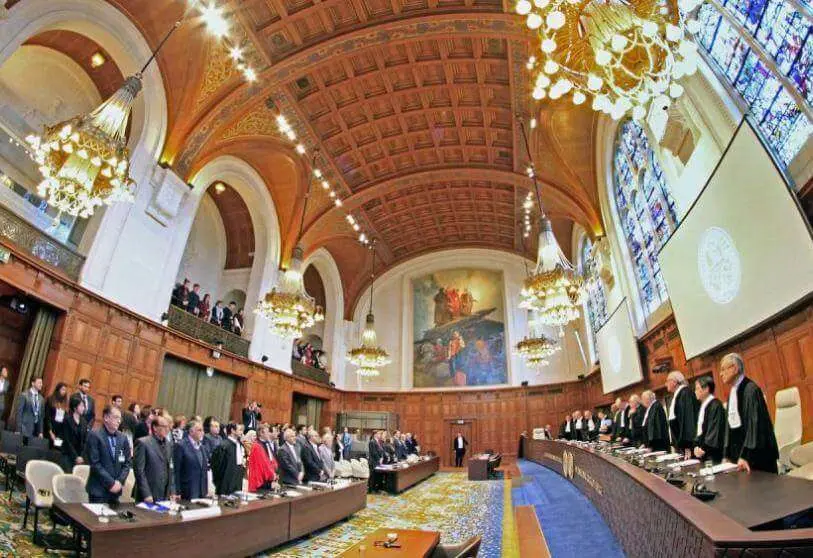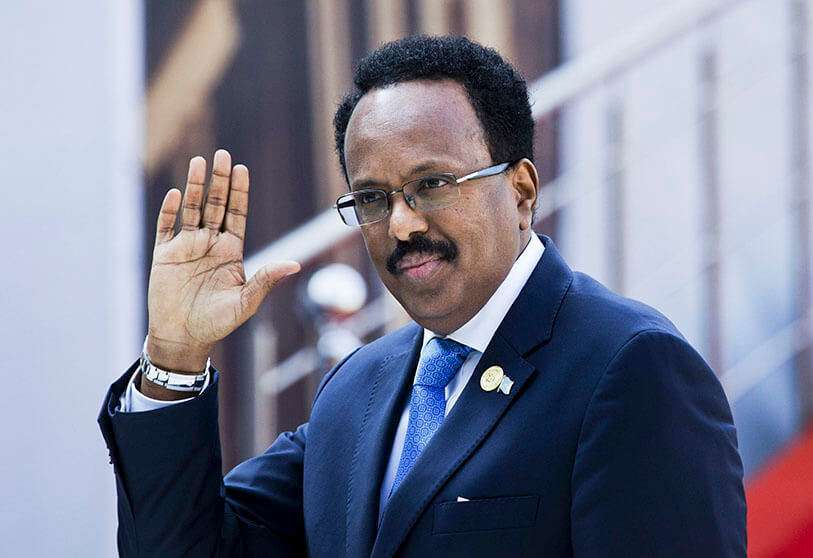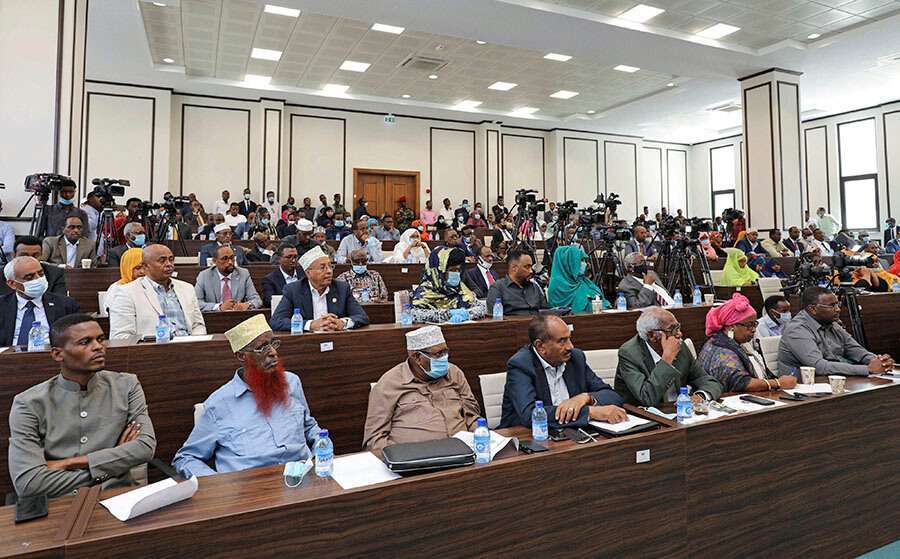ICJ gives Somalia victory over Kenya

As I mentioned in my previous article "Africa and its unresolved problems "1 , the continent continues to bear the consequences of colonisation, which is at the root of most of its current conflicts.
The border division that emerged from the Berlin Conference (1884-1885) left between 40 and 45 percent of ethnic groups divided by European borders, and this mortar is one of the main factors of conflict in the current landscape, but not the only one. Europeans arbitrarily distributed the territories, ignoring African geographical and cultural characteristics, no longer with a view to the creation of states, but as mere colonies, zones of exploitation and free trade. Over the years, it has become clear that the vast majority of civil conflicts are concentrated in the historical homeland of the divided ethnic groups.

While on the one hand the arbitrary territorial limitation is a factor of conflict, we also find the antagonist, the lack of definition of borders, leaving certain territories, especially maritime ones, as no man's land or, better said, everyone's land.
Numerous conflicts over maritime borders confront African countries. They are often forced to resort to international justice to settle the conflict between the protagonists, especially when deposits of raw materials (such as oil and gas) are discovered offshore. According to experts, 70% of territorial waters remain undefined2 .
An example of this is the case of Somalia and Kenya, in dispute since 1963 over an area of some 100,000 km2 , where oil and gas deposits could potentially be exploited, although traditional fishing is the main source of income for the Kenyan and Somali population. The conflict took on an international character in 2014 when Somalia decided to take it to the ICJ (International Court of Justice), with the ruling due to be announced on 12 October this year.

The conflict lies in the conception of how to delimit the territory: while Somalia is inclined to demarcate the territory on the basis of the land border, Kenya opts to continue with the delimitation parallel to the equator, a procedure through which decolonisation took place3 and therefore the demarcations of many other African states, also immersed in this type of conflict and which, if Somalia wins, would likewise seek to reshape their maritime limitations.
As a result, Somalia has emerged as the winner in the case, as foreseen by the ICJ (Judgment available at the following link: https://www.icj-cij.org/public/files/case-related/161/161-20211012-SUM-01-00-EN.pdf). On the one hand, the Somali president, A. M. Farmaajo, offering the opportunity to unite alliances between his "rival" country and lashing out at it, accusing it of "direct violations" of Somali sovereignty ("the Kenyan government invested a lot of time and resources in a campaign to isolate us politically, painting a distorted picture" of the country, which proved "damaging and insulting "4 ) and of having directly intervened in the political process in Somalia, mobilising political groups to spread chaos and political instability, in order to stop the case.5 On the other side, the Kenyan government has won the case. On the contrary, the Kenyan government, anticipating the outcome of the judgment, declared that the ruling would not be recognised as the "culmination of a flawed judicial process from which Kenya has had reservations and from which it has withdrawn, not only because of its obvious and evident bias but also because it is not adequate to resolve the dispute in question "6 .
With Somalia as the "winner", according to the ICJ, a more favourable scenario arises with regard to terrorism. If it had lost the case, the population, which mainly benefits from traditional fishing in the disputed area, would have lost its source of income, thereby increasing social instability and becoming a breeding ground and target for jihadism, in this case, in the hands of Al-Shabaab. However, given the country's complicated situation, the real scenario is not significantly different.

Somali territory and that of the surrounding states are in grave danger from both terrorism and piracy, which is why the UN and the AU (African Union) launched AMISOM (African Union Mission to Somalia), a mission that ends on 31 December this year, but which the Somali president has refused to extend, as he wants to assume primary responsibility for his country's security. What is proposed to the AU is collaboration in the fight against terrorism and national security, but which guarantees the sovereignty of the host country in decision-making and measures7 .
Directly, the ICJ ruling affects Kenya's counter-terrorism assistance to Somalia, which through AMISOM has troops deployed in the neighbouring territory. The loss of the maritime territory could lead to the withdrawal of these troops or a reduction in their numbers, something that would not be very intelligent on their part considering that they are another target of Al-Shabaab's jihadist terrorism, which should be a joint anti-terrorist fight.
Without going very far, on 12 October last, there was an attack in Kenya against a military vehicle claimed by Al-Shabaab, in which fourteen soldiers were killed8 .
Added to this is the rise of nationalism in Kenya against Somali ethnic minorities near the border. As mentioned at the beginning of the text, based on the article 'Africa and its unresolved problems', various ethnic groups were divided among several states, resulting in ethnic and tribal conflicts. The rise of nationalism stemming from Kenyans' economic frustration would lead to violent actions against the ethnic Somali minority residing in Kenya.
Once again we can see how colonialism and its nefarious decolonisation process has thrown the African continent into chaos, and how it is unable to break out of the multi-sectoral loop of instability in which it finds itself. The International Court of Justice may be able to legally determine the ownership of the territory, but it is unable to control and contain the violence that will ensue.
Bibliography
- Gómez, A. P. (2021). África y sus problemas por resolver. Atalayar.
- LANKOANDE, B. (2015). Las fronteras marítimas en África: el 70 % no están claramente definidas. CIDAF UCM
- Canorea, A. L. (30 de Abril de 2021). Kenia y Somalia, a juicio por su frontera marítima. Descifrando la guerra.
- EUROPA PRESS. (2021 de Octubre de 12). La CIJ otorga a Somalia la mayor parte de la zona marítima reclamada por Kenia. EUROPA PRESS.
- Ibidem.
- DW. (13 de Octubre de 2021). CIJ da a Somalia mayor parte de zona reivindicada por Kenia. DW
- EFE. (12 de Octubre de 2021). Somalia rechaza la creación de una misión de paz conjunta de la UA y la ONU. El Diario; EFE.
- EUROPA PRESS. (12 de Octubre de 2021). Al menos cinco muertos en un atentado suicida en una cafetería de Mogadiscio. notimérica; EUROPA PRESS.









